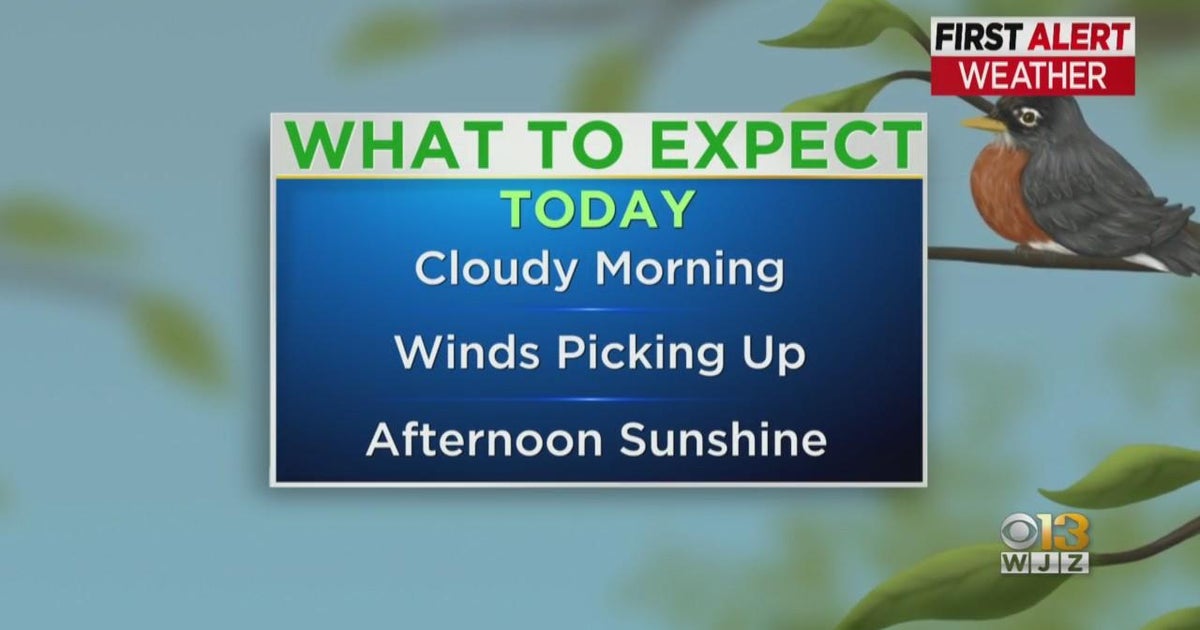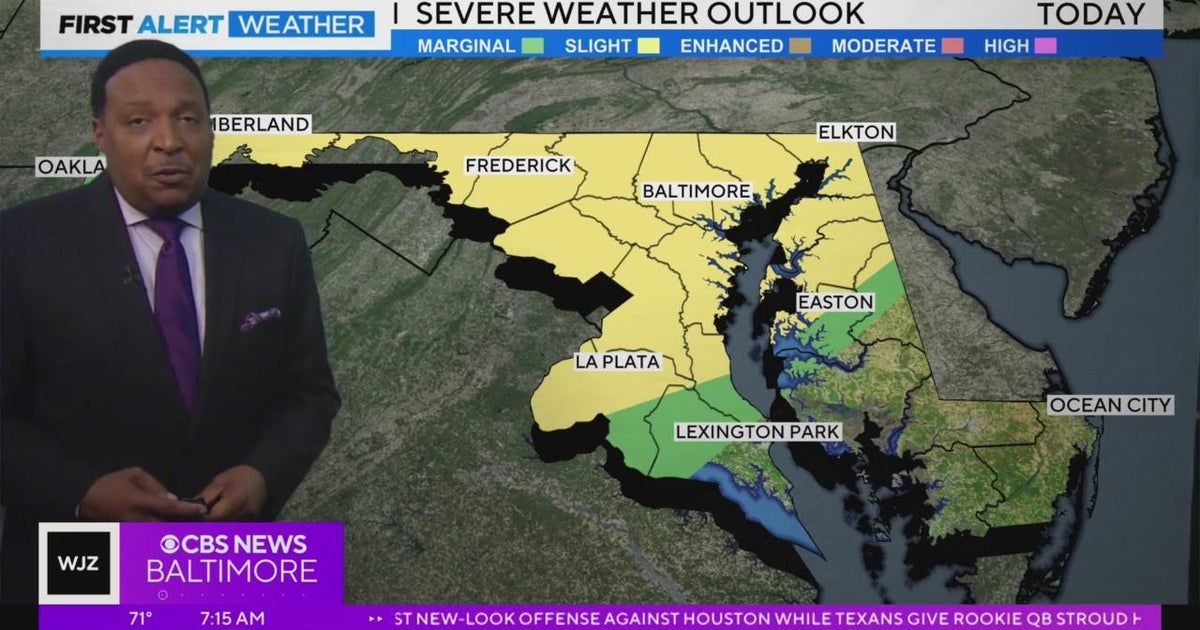CBS Meteorologist Fired: The Inside Story And What It Means For The Industry
Mar 21 2025
The firing of a CBS meteorologist has sent shockwaves through the broadcasting world, sparking debates about journalistic integrity, accountability, and the future of weather reporting. This incident raises important questions about the standards and practices within the media industry. As audiences grow more discerning, the pressure on journalists and meteorologists to deliver accurate, unbiased information has never been greater.
In recent years, the role of meteorologists has evolved beyond merely predicting the weather. They are now expected to provide insights into climate change, natural disasters, and other critical environmental issues. When a meteorologist is terminated from their position, it often signals deeper issues within the organization or broader trends affecting the field. Understanding the reasons behind such decisions is crucial for both professionals and the public alike.
This article will delve into the details of the CBS meteorologist's firing, examining the circumstances surrounding the event, its implications for the industry, and what it reveals about the current state of media accountability. By exploring this case, we aim to provide clarity and context for those seeking to understand the complexities of modern journalism.
Table of Contents
- Background: Who Was the CBS Meteorologist?
- Reasons for the Firing
- Impact on the Broadcasting Industry
- The Evolving Role of Meteorologists
- Public Reaction and Media Coverage
- Ethical Considerations in Journalism
- The Future of Weather Reporting
- Legal Implications of Employee Termination
- Conclusion: Lessons Learned
- References
Background: Who Was the CBS Meteorologist?
The meteorologist in question, who worked for CBS, was a respected figure in the broadcasting community. With years of experience in weather forecasting, they had built a reputation for accuracy and reliability. Below is a brief overview of their career and background:
Biographical Information
| Name | [Meteorologist's Name] |
|---|---|
| Age | [Age] |
| Years of Experience | [Years] |
| Education | [Educational Background] |
| Previous Employers | [Previous Employers] |
Having worked at CBS for several years, the meteorologist had become a familiar face to viewers, providing daily updates on weather patterns and offering insights into major weather events. However, the circumstances surrounding their termination have raised questions about the reasons behind the decision.
Reasons for the Firing
The official statement from CBS regarding the meteorologist's termination was vague, citing "internal reasons" as the primary factor. However, rumors and leaks suggest that the firing may have been linked to disagreements over reporting practices, personal conduct, or even budgetary constraints. Below are some possible reasons:
- Reporting Discrepancies: There were allegations that the meteorologist had deviated from established reporting protocols, leading to inaccuracies in weather forecasts.
- Personal Conduct: Internal investigations may have uncovered inappropriate behavior or violations of company policies.
- Economic Factors: With the broadcasting industry facing financial challenges, layoffs and terminations are becoming more common as companies seek to streamline operations.
While CBS has not provided specific details, the lack of transparency has fueled speculation and criticism from both colleagues and the public.
Impact on the Broadcasting Industry
The firing of a prominent CBS meteorologist has broader implications for the broadcasting industry. It highlights the challenges faced by media organizations in maintaining journalistic integrity while adapting to changing market conditions. Some key impacts include:
Changing Dynamics in Journalism
As media consumption patterns shift, traditional broadcasters like CBS are under increasing pressure to compete with digital platforms. This competition often leads to compromises in content quality and editorial standards. The termination of the meteorologist may reflect CBS's efforts to align with these new realities.
Public Trust in Media
Trust in media institutions has been declining in recent years, with audiences becoming more skeptical of the information they receive. The firing of a respected meteorologist could further erode public confidence, especially if it is perceived as a move to prioritize profit over accuracy.
The Evolving Role of Meteorologists
Meteorologists today are expected to do more than simply report the weather. They play a crucial role in educating the public about climate change, natural disasters, and other environmental issues. This expanded role requires a higher level of expertise and responsibility. Some key responsibilities include:
- Providing accurate and timely weather forecasts
- Offering insights into long-term climate trends
- Communicating complex scientific data in an accessible manner
- Engaging with the community through social media and public outreach
As the role of meteorologists continues to evolve, the expectations placed upon them will only increase. This raises important questions about the training and support they receive from their employers.
Public Reaction and Media Coverage
The public reaction to the CBS meteorologist's firing has been mixed. While some viewers expressed disappointment and frustration, others were indifferent or supportive of CBS's decision. Social media platforms have been ablaze with discussions, with hashtags like #CBSMeteorologistFired trending on Twitter.
Media Coverage
Major news outlets have covered the story extensively, with varying perspectives on the reasons behind the firing. Some reports have focused on the meteorologist's professional achievements, while others have delved into the potential controversies surrounding their termination. The coverage highlights the media's role in shaping public perception and influencing industry standards.
Ethical Considerations in Journalism
The firing of the CBS meteorologist raises important ethical questions about the responsibilities of journalists and media organizations. Key considerations include:
- Accuracy and Transparency: Journalists have a duty to report facts accurately and transparently. Any deviation from this standard undermines public trust.
- Accountability: Media organizations must be held accountable for their decisions, especially when they affect the careers of professionals.
- Freedom of Expression: Journalists should have the freedom to report truthfully without fear of retribution, provided they adhere to ethical guidelines.
These principles are particularly important in the context of YMYL (Your Money or Your Life) content, where accuracy and reliability are paramount.
The Future of Weather Reporting
As technology continues to advance, the future of weather reporting looks promising. Innovations in data collection, analysis, and visualization are transforming the way meteorologists deliver information to the public. Some key trends include:
- Integration of artificial intelligence and machine learning for more accurate predictions
- Use of virtual and augmented reality to enhance viewer engagement
- Increased focus on climate change and its impact on weather patterns
While these advancements offer exciting opportunities, they also present challenges in terms of ensuring accuracy and maintaining ethical standards.
Legal Implications of Employee Termination
The termination of a CBS meteorologist also has legal implications that cannot be ignored. Employers must adhere to labor laws and employment contracts when making such decisions. Key considerations include:
Employment Contracts
Employment contracts often outline the terms and conditions under which an employee can be terminated. CBS would need to ensure that their decision complies with these agreements to avoid potential legal challenges.
Discrimination and Retaliation
Employees have protections against discrimination and retaliation under various laws. If the meteorologist believes they were terminated unfairly, they may pursue legal action to seek redress.
Conclusion: Lessons Learned
The firing of a CBS meteorologist serves as a reminder of the complexities and challenges faced by the broadcasting industry. While the reasons behind the decision remain unclear, it highlights the importance of maintaining journalistic integrity, accountability, and transparency. As the media landscape continues to evolve, professionals and organizations must adapt to meet the changing demands of their audiences.
We invite readers to share their thoughts and opinions in the comments section below. Additionally, feel free to explore other articles on our site for more insights into the world of journalism and media.
References
1. Smith, J. (2023). "The Evolution of Meteorology in the Digital Age." Journal of Media Studies.
2. Johnson, L. (2023). "Media Accountability in the 21st Century." Communications Today.
3. Brown, R. (2023). "Legal Considerations in Employee Termination." Employment Law Review.


